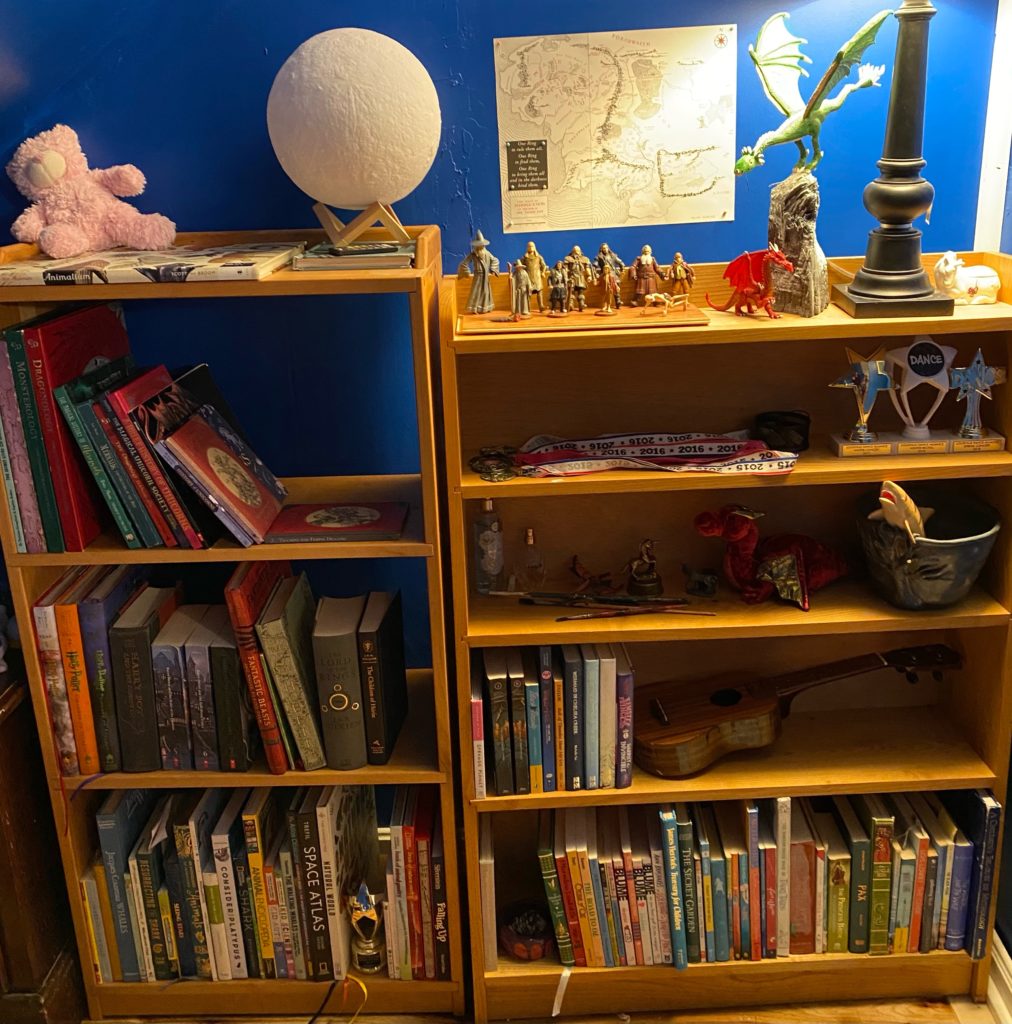
Books are an inevitable part of growing up with a dad who teaches English. Both of my kids have become able readers who probably qualify as precocious. Also, in my job as an English teacher, I come across lots and lots of people wondering why these kids just won’t read! So, consider this an experience-based explanation of how to get kids to read.
- You have to read. This is the biggest and most obvious one. It’s also one people like to ignore when it’s inconvenient. Kids mimic their parents. If they see you reading, they will want to read. There are studies that show that this is even more important than reading to children yourself.
- Make it fun. I like reading. Don’t you? It’s great. And yet, it often gets treated like a chore. “You have to read at least 30 minutes a day at home” is common homework for elementary schoolers, probably based on studies that show kids who read more are better at reading (duh). But the key isn’t getting them to read more. It’s making them want to read more. To that end:
- I have never (and I mean this) made my kids read because it was homework. We all read together before they go to bed. That used to mean picture books and funny voices. Now it means all of us sitting int he same room with our own books. I also have a rule that has been in place forever: No matter what bedtime is, you can stay up as long as you want if you’re reading. This both makes reading a fun bonus for kids AND it gets you lots of cute pictures of your children who have fallen asleep with a book hanging open.
- Let them read stuff that seems a little beyond them. I mean this both in terms of what some people would call “mature content” and in terms of reading level. Reading level is easy. It lets kids challenge themselves in a low-stakes way. If a book is to hard, it’s no big deal and they can feel good about they fact that they pushed their limits. And it can always be returned to later. Content is what freaks out some parents. I recently read a book called Mermaid in Chelsea Creek. I’d gotten it for my daughter for Christmas and she loved it (and the other two in the series and asked me to read it). I thought it was delightful and a fun read. I was, however, surprised at some of the mediocre reader reviews I saw. Turns out a bunch of them were mad because it uses the “f-word” and acknowledges that sex exists and so on. Listen, I promise you that if you have a child in the 6th grade, they have heard every word you can imagine (do you remember being 11 or 12) and they definitely know what sex is – whether you’ve talked to them about it or not. This isn’t to say that you should give kids completely free reign, but there comes a point when you have to realize that their experiences widen, and it’s good to let them read books that acknowledge those experiences and don’t try to sanitize their lives.
- Let them pick books for themselves. We have a monthly book night here, where everyone gets a book from the bookstore (or, for the last year, where dad calls and places an order that we pick up curbside later), but not everyone has the means to do that. Libraries, fortunately, exist and are generally very good at doing everything they can to make themselves accessible. Let your kids run wild (not literally, be nice to your librarians). Yes, sometimes they’re gonna bring home stuff you hate. Oh well. You irritated your parents once, too.
- Read stuff they suggest to you. I guess a little more than a year ago, I told both my kids that if they ever read a book they thought I should read, they should tell me, and I’d read it. God knows I’ve given them enough suggestions. They don’t do it often, but they have done it (see the aforementioned Mermaid in Chelsea Creek), and it’s nice. Kids like to be on equal footing with their parents some times, and it creates a culture where their opinion is valued and where reading becomes a genuinely shared experience.
So there we go. I’m still getting back into the swing of this writing about books thing, and hopefully future posts will be less of a ramble, but at least you got to see a cool bookshelf.
